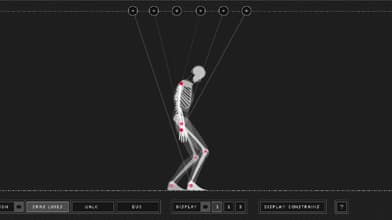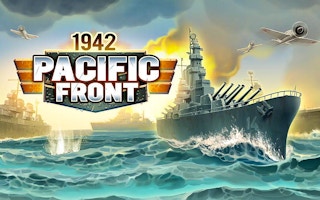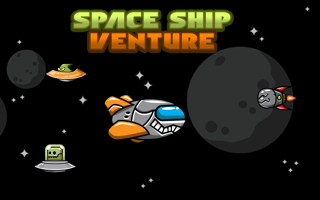The field of education is evolving, and science games have emerged as a powerful tool to spark interest and learning in children. These immersive games make learning intricate scientific principles easier and more enjoyable. Companies this platform are transforming students' interactions with science by providing engaging games such as Time Walker: Survive and Detective Holmes: Hidden Object, where learning is entwined with playful adventures. This blog examines the usefulness of science games, their consequences on education, and what this and similar platforms are doing to enhance education technology.
The Impact of Science Games on Education and the Learning Process
Many traditional forms of education struggle with student participation due to the abstract or intimidating nature of the subjects being taught. There are Science Games, which aid in bridging this gap by using lessons as immersive experiences. Research studies have shown that gamification improves retention and understanding, and students tend to improve their assessments after engaging with educational games. One such game,” Time Walker: Survive, is available on the platform. It challenges players to navigate through historical scientific discoveries.
The popularity of science games stems from the ease with which intricate concepts can be taught. Physics, chemistry and biology are made easier through interactive puzzles and simulations. By actively reinforcing problem-solving and critical thinking skills, these games enable students to learn scientific concepts in an exploratory manner. Learners of all ages are guaranteed something engaging and educational on the platform.
The Function of Storytelling in Science Games
One of the most unique features of a science game is storytelling. Many of them use stories to help engage the players. In Detective Holmes: Hidden Object, players learn critical scientific inquiry skills while they try to solve different kinds of mysteries. The player assumes the role of a detective who solves challenges by applying cognitive skills grounded in scientific principles. The story keeps the player engaged as the game instructs them on the critical elements of the scientific method, which include: observation, forming a hypothesis, and gathering evidence.
Another story-based learning game, Time Walker: Survive, found on the platform, takes players through different periods to learn challenge-based scientific learning. Students advance through the various periods by overcoming challenges related to different modern-day inventions and discoveries. Learning and storytelling like this are highly effective, as they allow students to remember concepts with ease and enhance their understanding.
Advantages of Science Games for Cognitive Development
In addition to making learning enjoyable, science games help in many other ways as well, extending their significant merits to one’s cognition. Such activities aid in the development of critical thinking, creativity, and problem-solving skills, skills pivotal for academic and career success. An illustration is Detective Holmes: Hidden Object, which engages players by blending clue analysis with connection-making, enhancing logical reasoning. Time Walker: Survive also performs similar functions by challenging players to adapt their strategies scientifically, which earns them advanced decision-making skills.
In addition, science games attend to all forms of learning. Visual learners absorb information through their eyes, while kinesthetic learners grasp information through physical participation. The platform ensures accessibility from different points of view, offering a wide range of games, including puzzles, which are more learner-centric than open-world games. Because of this, science games help teachers who want all their learners to be actively engaged.
The Bolster Features Integration
Through organising various science games, it acts as an all-in-one platform for students, teachers, and parents. It revolutionises the sphere of educational gaming. Games like Time Walker: Survive and Detective Holmes: Hidden Object blend education and entertainment. Enhanced graphics and ease of use make the device the gamer’s gateway to immersive worlds, where one can repeatedly participate.
The difference in it lies in the intense focus placed on the edutainment aspect. All games retain a proper structure that focuses on learning outcomes, such as Holmes: “Hidden Object”, which entertains while promoting scientific observation and learning. TimeWalker recounts science landmark events in an engaging way that keeps the player's attention. Keeping the focus off achievement-based tests makes this platform and its users learning-oriented and curious about the content.
Supporting Collaborative and Competitive Skills
Science games foster collaboration and healthy competition, which are crucial for social and academic development. On the platform, multiplayer games offer students opportunities to engage in scientific problem-solving, fostering both collaboration and communication. For instance, participants in Time Walker: Survive can team up to overcome challenges that mimic scientific cooperation.
Additionally, the competitive features of Detective Holmes: Hidden Object motivate players to improve their skills to beat their opponents. This blend of competition and teamwork resembles the scientific world, where scholars collaborate on projects while simultaneously seeking to make paradigm-shifting discoveries. These aspects are compelling on the platform, which utilizes these features in conjunction with reward systems and scoreboards to motivate performance improvement.
Application of Science Games in the Classroom
Many educators are now seeking to incorporate science games into their classes, and the platform makes it easy to do so. Educators can use games as primary lesson tools or as supplementary resources to reinforce previously taught concepts. For example, Time Walker: Survive can be used for a science history lesson, while Detective Holmes: Hidden Object can be used for lessons on observation and analysis.
To maximise the impact, educators need to integrate the in-game lessons with real-life applications. Moreover, educators must ensure that game-based learning aligns with the educational goals set for the students. The platform supports educators by providing pre-created materials, including lesson outlines and content guides, as well as science games that are both entertaining and intellectually challenging.
The Future of Science Games
With the advancement of technology, the opportunities for science games are limitless. New technologies such as virtual and augmented reality, as well as artificial intelligence, all significantly enhance the potential for immersive learning. The platform is a leader in these changes in meaning. They continue to add new, technologically advanced games, providing cutting-edge learning and educational tools.
Shortly, the adaptive capabilities of science games are expected to improve considerably. This means that they will cater more to the individual requirements and preferences of the learners. The development of tailored games has already begun with such examples as Time Walker: Survive and Detective Holmes: Hidden Object, Leveraging tools who focus on making education more enjoyable, while also informative can spark a sense of curiosity in the younger generations and eventually aid them in becoming the changemakers of the future.
Conclusion
Science games are redefining educational practices by enhancing the effectiveness and ease of acquiring knowledge. An example of a game-based learning platform is Beas, which features titles such as Time Walker: Survive and Detective Holmes: Hidden Object. Their purpose lies in edutainment. On the platform, the use of science games fosters curiosity, critical thinking, collaboration, and constructive imagination, thereby contributing to the science games-enriched education offered on the platform, which helps achieve a new perspective on education that focuses more on innovation.





